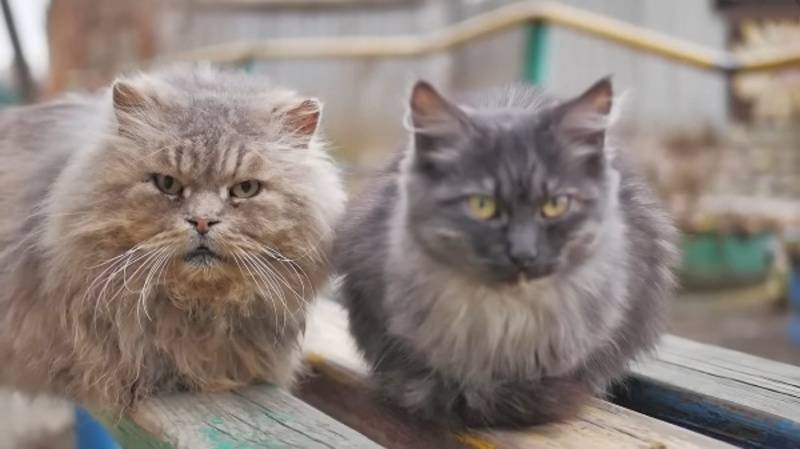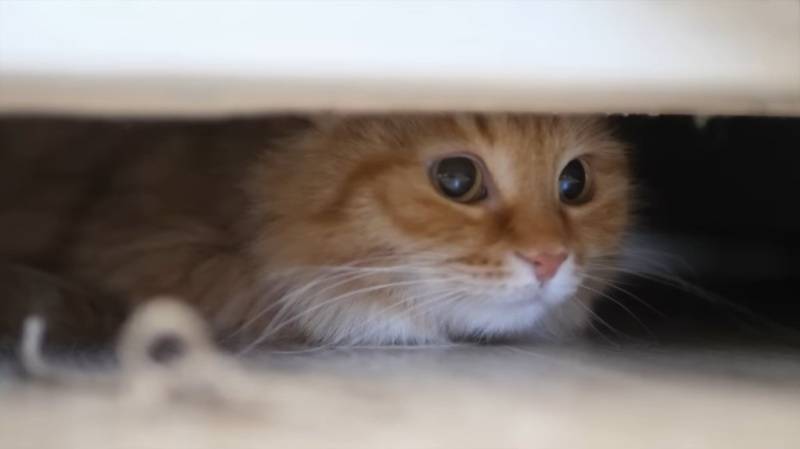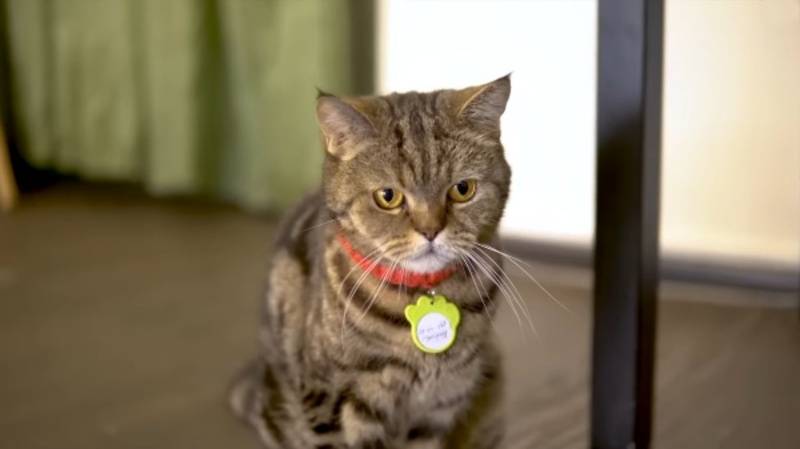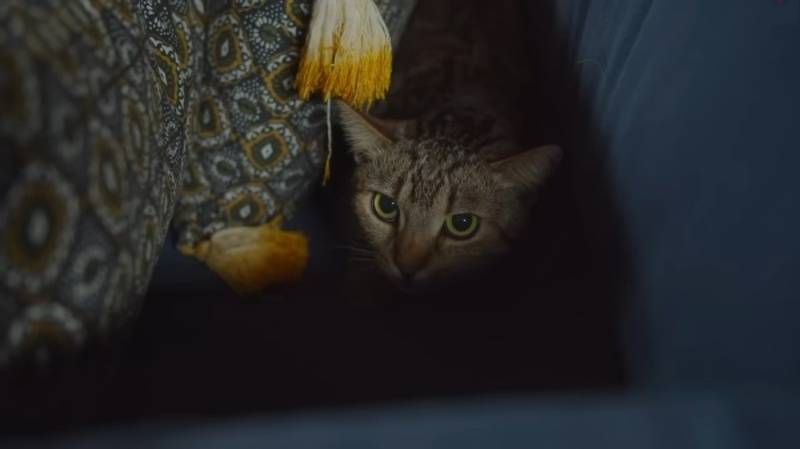No products in the cart.
Is THC safe for cats?” is a question that has become increasingly relevant as more households have access to cannabis products. While humans might use THC for its therapeutic and recreational benefits, the situation is starkly different for our feline companions.
The safety of THC for cats from both scientific and veterinary perspectives will be examined in this blog. Exploring the potential risks, symptoms of exposure, and provide clarity on why THC might not be a suitable or safe option for your felines.
Understanding of THC for Cats

THC (tetrahydrocannabinol) is the psychoactive compound found in cannabis that causes the “high” in humans. For cats, THC is generally considered unsafe. Compared to humans, cats are much more sensitive to THC and they can be harmful with small amounts.
Lethargy, breathing problems, lowered blood pressure and abnormal heart rhythms are the common symptoms of THC poisoning in cats and in severe cases, it can lead to coma or death. Thus, most veterinarians advise against exposing cats to THC.
CBD Oil for Cats No THC
CBD oil for cats without THC is widely considered a safer alternative for helping manage various conditions such as anxiety, inflammation, and pain in cats. These products have no or very little THC because they are made from hemp, not marijuana.
To ensure they are free of THC, pesticides, and other harmful contaminants, do not forget to look for high-quality, lab-tested products specifically formulated for pets when choosing CBD oil for felines.
Can I Use THC for Cats Anxiety?
It is not advisable to use THC for managing anxiety in cats. The potential risks far outweigh any unproven benefits. Instead, focusing on alternatives like CBD specifically designed for pets, which lacks psychoactive effects, is a safer approach. To determine the best and safest options for managing your cat’s anxiety, getting advice from a veterinarian is recommended.
It is not advised to use THC for managing anxiety in cats for the following reasons.
- High sensitivity to THC: THC can increase the risk of adverse reactions even at very low doses and cats are extremely sensitive to this.
- Risk of toxicity: THC can be toxic to cats, serious health issues can occur, like vomiting, seizures, and even coma.
- Lack of research: There is no more research on the effects of THC on cats, especially regarding its safety and efficacy for treating conditions like anxiety.
- Legal and ethical concerns: In many places, the usage of THC in pets raises ethical and legal questions about the welfare of the animals.
- Availability of safer alternatives: Safer alternatives like CBD products specifically formulated for pets are available. These solutions can treat anxiety in the desired way without the negative side effects of THC.
- Veterinary advice: Veterinarians generally advise against the use of THC in cats due to its potential for harm and lack of established therapeutic benefits.
Does THC Affect Cats?

Because of their distinct physiology and increased sensitivity to THC, cats are greatly impacted by this substance. Cats have a highly sensitive endocannabinoid system that can be easily overwhelmed by THC. This can cause significant physical and behavioral effects.
How Does THC Affect Cats?
When cats consume THC, it connects to cannabinoid receptors in their brain and other organs. Normal cellular functions and neurotransmitter activity can be affected by this binding mechanism. As a result, THC can cause:
- Neurological effects: This covers mental state shifts including disorientation, bewilderment, or extreme tiredness.
- Physical effects: THC can impair motor coordination, leading to stumbling or an inability to control movements effectively.
- Autonomic effects: It can influence autonomic functions, causing changes in heart rate, body temperature, and other involuntary responses.
What are the Signs of THC Toxicity in Cats?
The signs of THC toxicity in cats are more pronounced due to their sensitivity and can include:
- Neurological signs: These may involve severe disorientation, apparent hallucinations, or stupor. Cats might appear to be staring off into space or responding to stimuli that are not apparent to humans.
- Physical symptoms: Common physical symptoms include drooling excessively, vomiting, and severe tremors or seizures. Certain cats may show signs of bradycardia (slow heart rate) or hypothermia (low body temperature).
- Behavioral changes: Cats that are affected may exhibit agitation, odd vocalizations, or pacing as indicators of distress or worry. In contrast, some may become unusually withdrawn and non-responsive.
- Motor coordination issues: Difficulty with coordination (ataxia) is often noticeable, with cats appearing unsteady on their feet, which can escalate to the inability to walk or stand.
Each of these symptoms represents a potential medical emergency in cats and rto prevent more severe health consequences, immediate veterinary attention is required.
The Differences of CBD and THC for Cats

CBD (cannabidiol) and THC (tetrahydrocannabinol) are both compounds found in cannabis plants but have very different effects, especially when it comes to pets like cats. Here are the key differences:
| Aspect | CBD (Cannabidiol) | THC (Tetrahydrocannabinol) |
| Psychoactive Effects | Non-psychoactive; does not cause a high. | Psychoactive; causes a high and can lead to disorientation. |
| Legality | Legal in many regions when derived from hemp and contains less than 0.3% THC. | Generally illegal or restricted to medical use in many areas. |
| Safety for Cats | Considered safe when formulated specifically for pets; lacks harmful effects. | Highly toxic to cats, even in small doses. |
| Medical Uses | Used to manage anxiety, pain, inflammation, and seizures without intoxicating effects. | Not recommended due to high risk of negative effects and toxicity. |
| Side Effects | Rare and mild, often limited to slight lethargy or gastrointestinal upset when dosed properly. | Can include serious symptoms like seizures, trembling, vomiting, and even potentially fatal illnesses. |
| Veterinary Recommendation | Often recommended by veterinarians for its safety profile and therapeutic benefits. | Generally advised against by veterinarians due to safety concerns. |
While CBD is increasingly accepted and used in veterinary contexts for its potential health benefits and minimal side effects, THC is considered unsafe and inappropriate for cats due to its psychoactive effects and high potential for toxicity.
Is THC Safe for Cats?

THC is definitively unsafe for cats. Drooling, tiredness or serious symptoms like seizures and potentially fatal heart problems can result from exposure to THC.
Given these risks, coupled with the lack of research supporting any safe or therapeutic use of THC in cats, avoiding using THC for any purpose in feline care is strongly recommended by veterinarians. Instead, pet owners can consider safer alternatives, like CBD products made specifically for animals, which do not contain the psychoactive properties of THC and are safer for managing conditions such as anxiety and pain in cats.
FAQ
What are the signs of THC toxicity in cats?
It ought to be created especially for pets, guaranteeing that THC, pesticides, and other dangerous substances are absent.
Can I use CBD instead of THC for my cat’s anxiety?
Yes, CBD is considered a safer alternative to THC for managing conditions like anxiety in cats. It should be specifically formulated for pets, ensuring it is free of THC, pesticides, and other harmful contaminants.
What should I do if my cat ingests THC?
If your cat ingests THC, it is crucial to seek immediate veterinary care. THC poisoning can have rapidly worsening symptoms, but a veterinarian can administer the required treatments to control the toxicity.
Conclusion
When it comes to the question, “Is THC safe for cats?” The clear response is no. THC poses serious health concerns to cats and can cause severe symptoms. It’s crucial for us to stay away from THC as responsible pet owners and stick to safer, veterinarian-approved substitutes like CBD that is made especially for animals. Make sure your kitties’ medical care is both safe and suitable for their requirements in order to protect them.
I am Nelson Cooper, I pursue my passion for writing and my belief is that cats love humans. I enjoy traveling and have a deep appreciation for the beauty of nature, as well as a soft spot for animals, particularly cats.



